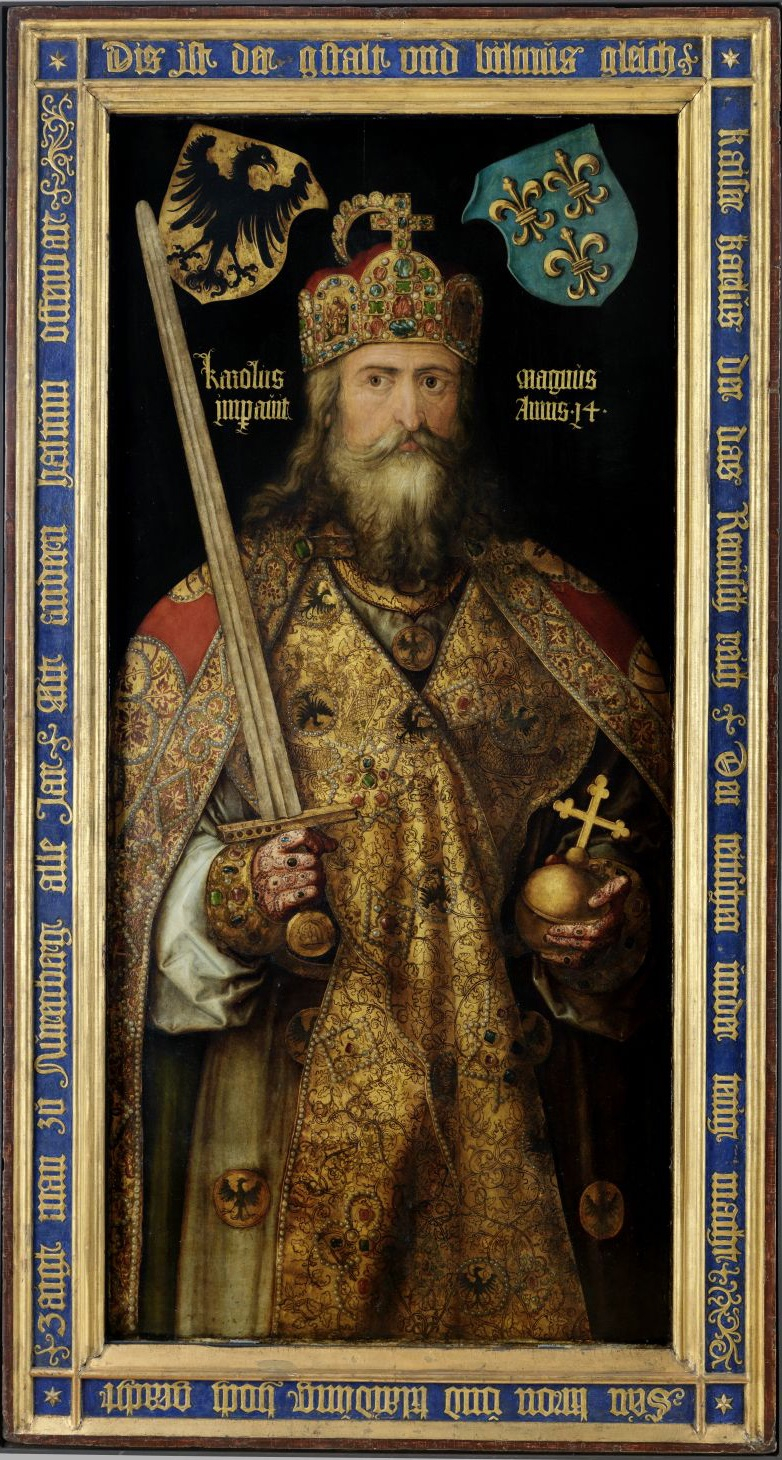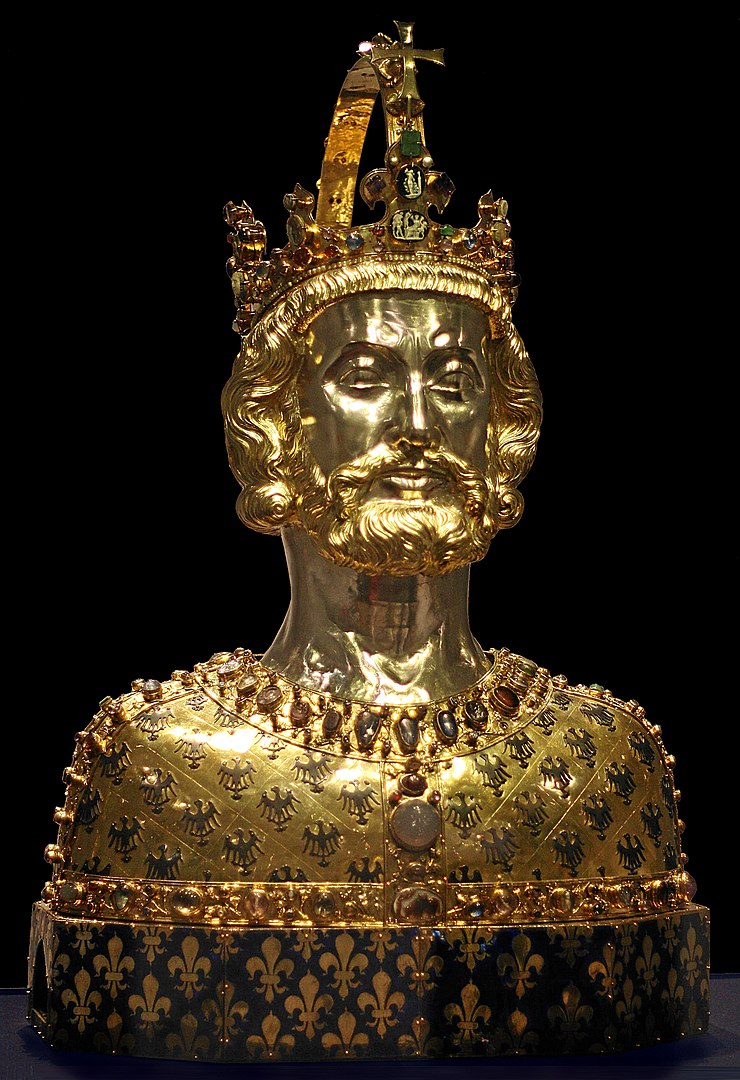Charles the Great
Charlemagne (Charles the Great, 2 April 747 – 28 January 814), a member of the Carolingian dynasty, was King of the Franks from 768, and the first Holy Roman Emperor from 800. Charlemagne was the first recognized emperor to rule in Western Europe following the fall of the Western Roman Empire some three centuries earlier. The Carolingian Empire was Charlemagne's extended Frankish empire. He was canonized by Antipope Paschal III, an act that was later declared invalid, and he is today considered by some to be beatified (a step on the way to sainthood) in the Catholic Church.
Charlemagne was Pepin the Short's and Bertrada of Laon's eldest son. He was born prior to their official marriage. Following his father's death in 768, he ascended to the throne of the Franks, initially ruling alongside his brother Carloman I until the latter's death in 771. As sole king, he carried on his father's policy of papal protection and became its sole defender, driving the Lombards from northern Italy and conducting an assault on Muslim Spain. He also battled against the Saxons to his east, Christianizing them (under penalty of death), which resulted in tragedies such as the Verden Massacre. He reached the pinnacle of his power in 800 when Pope Leo III crowned him Emperor of the Romans on Christmas Day in Old St. Peter's Basilica in Rome.
Charlemagne was dubbed the "Father of Europe" (Pater Europae) because he united most of Western Europe for the first time since the Roman Empire's classical age, as well as portions of Europe that had never been under Frankish or Roman dominion. His reign ushered in the Carolingian Renaissance, a flurry of cultural and intellectual activity within the Western Church. The Eastern Orthodox Church disliked Charlemagne because of his filioque backing and the Pope's preference for him as emperor over the Byzantine Empire's first female monarch, Irene of Athens. These and other disagreements eventually led to the division of Rome and Constantinople in the Great Schism of 1054.
Charlemagne died in 814 from an infectious lung illness. In his imperial capital city of Aachen, he was laid to rest in the Aachen Cathedral. He was married at least four times and had three legitimate boys who grew up. Only Louis the Pious, the youngest, lived to succeed him. Many of Europe's royal houses have direct forebears in Charlemagne and his predecessors, notably the Capetian dynasty, the Ottonian dynasty, the House of Luxembourg, and the House of Ivrea.












